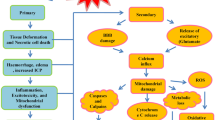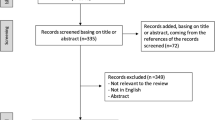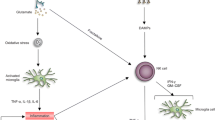Abstract
Sepsis can induce acute and chronic changes in the central nervous system termed sepsis-associated encephalopathy (SAE). Not only cognitive deficits but also anxiety, depression, and post-traumatic stress disorder are common in severe sepsis survivors. In this study, we demonstrated that amitriptyline, a classic tricyclic antidepressant, reduced sepsis-induced brain damage through the tropomyosin receptor kinase A (TrkA) signaling pathway. Amitriptyline ameliorated neuronal loss assessed by Nissl staining in a mouse cecal ligation and puncture (CLP)–induced sepsis model. Furthermore, amitriptyline reduced early gliosis assessed by immunofluorescence and late cognitive deficits assessed by the Morris water maze (MWM) test. Moreover, amitriptyline treatment attenuated oxidative stress indicated by less superoxide dismutase (SOD) and catalase (CAT) activity consumption and malondialdehyde (MDA) accumulation. Interestingly, those protective effects of amitriptyline could be abolished by GW441756, a TrkA signaling pathway inhibitor. Immunoblot directly showed that TrkA signaling pathway–associated proteins, such as Akt and GSK3β, were involved in the neuroprotective effects of amitriptyline. Thus, amitriptyline appears to be an encouraging candidate to treat cognitive deficits and depression after severe sepsis.




Similar content being viewed by others
Data Availability
All datasets generated for this study are included in the manuscript.
Abbreviations
- SAE:
-
Sepsis-associated encephalopathy
- CLP:
-
Cecal ligation and puncture
- TrkA:
-
Tropomyosin receptor kinase A
- Akt:
-
Serine/threonine-specific protein kinase
- GSK3β:
-
Glycogen synthase kinase 3β
- GFAP:
-
Glial fibrillary acidic protein
- SOD:
-
Superoxide dismutase
- MDA:
-
Malondialdehyde
- CAT:
-
Catalase
- BBB:
-
Blood-brain barrier
References
Adams S, Pacharinsak C (2015) Mouse anesthesia and analgesia. Curr Protoc Mouse Biol 5:51–63. https://doi.org/10.1002/9780470942390.mo140179
Bates KA, Martins RN, Harvey AR (2007) Oxidative stress in a rat model of chronic gliosis. Neurobiol Aging 28:995–1008. https://doi.org/10.1016/j.neurobiolaging.2006.05.003
Bernard-Gauthier V, Aliaga A, Aliaga A, Boudjemeline M, Hopewell R, Kostikov A, Rosa-Neto P, Thiel A, Schirrmacher R (2015) Syntheses and evaluation of carbon-11- and fluorine-18-radiolabeled pan-tropomyosin receptor kinase (Trk) inhibitors: exploration of the 4-aza-2-oxindole scaffold as Trk PET imaging agents. ACS Chem Neurosci 6:260–276. https://doi.org/10.1021/cn500193f
Bi W, Lan X, Zhang JW, Xiao S, Cheng XF, Wang HD, Lu DX, Zhu L (2019) USP8 ameliorates cognitive and motor impairments via microglial inhibition in a mouse model of sepsis-associated encephalopathy. Brain Res 1719:40–48. https://doi.org/10.1016/j.brainres.2019.05.009
Calsavara AJC, Nobre V, Barichello T, Teixeira AL (2018) Post-sepsis cognitive impairment and associated risk factors: a systematic review. Aust Crit Care 31:242–253. https://doi.org/10.1016/j.aucc.2017.06.001
Chao GQ, Zhang S (2013) A meta-analysis of the therapeutic effects of amitriptyline for treating irritable bowel syndrome. Intern Med 52:419–424. https://doi.org/10.2169/internalmedicine.52.9147
Chaudhry N, Duggal AK (2014) Sepsis associated encephalopathy. Adv Med 2014:762320–762316. https://doi.org/10.1155/2014/762320
Coopersmith CM, Amiot DM II, Stromberg PE, Dunne WM, Davis CG, Osborne DF, Husain KD, Turnbull IR, Karl IE, Hotchkiss RS, Buchman TG (2003) Antibiotics improve survival and alter the inflammatory profile in a murine model of sepsis from Pseudomonas aeruginosa pneumonia. Shock. 19:408–414. https://doi.org/10.1097/01.shk.0000054370.24363.ee
Dai Y, Wang S, Li C, Chang S, Lu H, Huang Z, Zhang F, Yang H, Shen Y, Chen Z, Qian J, Ge J (2017) Small molecule antidepressant amitriptyline protects hypoxia/reoxygenation-induced cardiomyocyte apoptosis through TrkA signaling pathway. Eur J Pharmacol 798:9–15. https://doi.org/10.1016/j.ejphar.2017.01.029
Davydow DS, Gifford JM, Desai SV, Bienvenu OJ, Needham DM (2009) Depression in general intensive care unit survivors: a systematic review. Intensive Care Med 35:796–809. https://doi.org/10.1007/s00134-009-1396-5
Deng S, Ai Y, Gong H, Chen C, Peng Q, Huang L, Wu L, Zhang L, Zhang L (2017a) Neuroglobin protects rats from sepsis-associated encephalopathy via a PI3K/Akt/Bax-dependent mechanism. J Mol Neurosci 63:1–8. https://doi.org/10.1007/s12031-017-0933-x
Deng SY, Zhang LM, Ai YH, Pan PH, Zhao SP, Su XL, Wu DD, Tan HY, Zhang LN, Tsung A (2017b) Role of interferon regulatory factor-1 in lipopolysaccharide-induced mitochondrial damage and oxidative stress responses in macrophages. Int J Mol Med 40:1261–1269. https://doi.org/10.3892/ijmm.2017.3110
Esterbauer H, Cheeseman KH (1990) Determination of aldehydic lipid peroxidation products: malonaldehyde and 4-hydroxynonenal. Methods Enzymol 186:407–421. https://doi.org/10.1016/0076-6879(90)86134-h
Feng Q et al (2017) Characterization of sepsis and sepsis-associated encephalopathy. J Intensive Care Med:885066617719750. https://doi.org/10.1177/0885066617719750
Gofton TE, Young GB (2012) Sepsis-associated encephalopathy. Nat Rev Neurol 8:557–566. https://doi.org/10.1038/nrneurol.2012.183
Goth L (1991) A simple method for determination of serum catalase activity and revision of reference range. Clin Chim Acta 196:143–151. https://doi.org/10.1016/0009-8981(91)90067-m
Griton M, Dhaya I, Nicolas R, Raffard G, Periot O, Hiba B, Konsman JP (2019) Experimental sepsis-associated encephalopathy is accompanied by altered cerebral blood perfusion and water diffusion and related to changes in cyclooxygenase-2 expression and glial cell morphology but not to blood-brain barrier breakdown. Brain Behav Immun 83:200–213. https://doi.org/10.1016/j.bbi.2019.10.012
Gunther ML, Morandi A, Krauskopf E, Pandharipande P, Girard TD, Jackson JC, Thompson J, Shintani AK, Geevarghese S, Miller RR 3rd, Canonico A, Merkle K, Cannistraci CJ, Rogers BP, Gatenby JC, Heckers S, Gore JC, Hopkins RO, Ely EW, VISIONS Investigation, VISualizing Icu SurvivOrs Neuroradiological Sequelae (2012) The association between brain volumes, delirium duration, and cognitive outcomes in intensive care unit survivors: the VISIONS cohort magnetic resonance imaging study*. Crit Care Med 40:2022–2032. https://doi.org/10.1097/CCM.0b013e318250acc0
Huang L, Zhang L, Liu Z, Zhao S, Xu D, Li L, Peng Q, Ai Y (2019) Pentamidine protects mice from cecal ligation and puncture-induced brain damage via inhibiting S100B/RAGE/NF-kappaB. Biochem Biophys Res Commun 517:221–226. https://doi.org/10.1016/j.bbrc.2019.07.045
Hutchinson MR, Loram LC, Zhang Y, Shridhar M, Rezvani N, Berkelhammer D, Phipps S, Foster PS, Landgraf K, Falke JJ, Rice KC, Maier SF, Yin H, Watkins LR (2010) Evidence that tricyclic small molecules may possess toll-like receptor and myeloid differentiation protein 2 activity. Neuroscience. 168:551–563. https://doi.org/10.1016/j.neuroscience.2010.03.067
Juhaszova M, Zorov DB, Yaniv Y, Nuss HB, Wang S, Sollott SJ (2009) Role of glycogen synthase kinase-3beta in cardioprotection. Circ Res 104:1240–1252. https://doi.org/10.1161/CIRCRESAHA.109.197996
Kandil EA, Abdelkader NF, El-Sayeh BM, Saleh S (2016) Imipramine and amitriptyline ameliorate the rotenone model of Parkinson’s disease in rats. Neuroscience. 332:26–37. https://doi.org/10.1016/j.neuroscience.2016.06.040
Kornhuber J, Tripal P, Reichel M, Terfloth L, Bleich S, Wiltfang J, Gulbins E (2008) Identification of new functional inhibitors of acid sphingomyelinase using a structure-property-activity relation model. J Med Chem 51:219–237. https://doi.org/10.1021/jm070524a
Kubera M, Holan V, Mathison R, Maes M (2000) The effect of repeated amitriptyline and desipramine administration on cytokine release in C57BL/6 mice. Psychoneuroendocrinology. 25:785–797
Li K et al (2019) Taurine protects against myelin damage of sciatic nerve in diabetic peripheral neuropathy rats by controlling apoptosis of schwann cells via NGF/Akt/GSK3beta pathway. Exp Cell Res 383:111557. https://doi.org/10.1016/j.yexcr.2019.111557
Liu Y, Wang H, Liu N, du J, Lan X, Qi X, Zhuang C, Sun T, Li Y, Yu J (2019) Oxymatrine protects neonatal rat against hypoxic-ischemic brain damage via PI3K/Akt/GSK3beta pathway. Life Sci. https://doi.org/10.1016/j.lfs.2019.04.070
Mercadante S (2015) Topical amitriptyline and ketamine for the treatment of neuropathic pain. Expert Rev Neurother 15:1249–1253. https://doi.org/10.1586/14737175.2015.1101347
Minnone G, De Benedetti F, Bracci-Laudiero L (2017) NGF and its receptors in the regulation of inflammatory response. Int J Mol Sci 18. https://doi.org/10.3390/ijms18051028
Mo Y, Deng S, Zhang L, Huang Y, Li W, Peng Q, Liu Z, Ai Y (2019) SS-31 reduces inflammation and oxidative stress through the inhibition of Fis1 expression in lipopolysaccharide-stimulated microglia. Biochem Biophys Res Commun 520:171–178. https://doi.org/10.1016/j.bbrc.2019.09.077
Nikayin S, Rabiee A, Hashem MD, Huang M, Bienvenu OJ, Turnbull AE, Needham DM (2016) Anxiety symptoms in survivors of critical illness: a systematic review and meta-analysis. Gen Hosp Psychiatry 43:23–29. https://doi.org/10.1016/j.genhosppsych.2016.08.005
Nwafor DC, Brichacek AL, Mohammad AS, Griffith J, Lucke-Wold BP, Benkovic SA, Geldenhuys WJ, Lockman PR, Brown CM (2019) Targeting the blood-brain barrier to prevent sepsis-associated cognitive impairment. J Cent Nerv Syst Dis 11:1–14. https://doi.org/10.1177/1179573519840652
O’Neill E, Kwok B, Day JS, Connor TJ, Harkin A (2016) Amitriptyline protects against TNF-alpha-induced atrophy and reduction in synaptic markers via a Trk-dependent mechanism. Pharmacol Res Perspect 4:e00195. https://doi.org/10.1002/prp2.195
Orhun G et al (2019) Association between inflammatory markers and cognitive outcome in patients with acute brain dysfunction due to Sepsis. Noro Psikiyatri Arsivi 56:63–70. https://doi.org/10.29399/npa.23212
Oyanagui Y (1984) Reevaluation of assay methods and establishment of kit for superoxide dismutase activity. Anal Biochem 142:290–296. https://doi.org/10.1016/0003-2697(84)90467-6
Parker AM, Sricharoenchai T, Raparla S, Schneck KW, Bienvenu OJ, Needham DM (2015) Posttraumatic stress disorder in critical illness survivors: a metaanalysis. Crit Care Med 43:1121–1129. https://doi.org/10.1097/CCM.0000000000000882
Peng H, Li C, Kadow S, Henry BD, Steinmann J, Becker KA, Riehle A, Beckmann N, Wilker B, Li PL, Pritts T, Edwards MJ, Zhang Y, Gulbins E, Grassmé H (2015) Acid sphingomyelinase inhibition protects mice from lung edema and lethal Staphylococcus aureus sepsis. J Mol Med (Berl) 93:675–689. https://doi.org/10.1007/s00109-014-1246-y
Prencipe G et al (2014) Nerve growth factor downregulates inflammatory response in human monocytes through TrkA. J Immunol 192:3345–3354. https://doi.org/10.4049/jimmunol.1300825
Rittirsch D, Huber-Lang MS, Flierl MA, Ward PA (2009) Immunodesign of experimental sepsis by cecal ligation and puncture. Nat Protoc 4:31–36. https://doi.org/10.1038/nprot.2008.214
Santos LE et al (2013) Alcohol abuse promotes changes in non-synaptic epileptiform activity with concomitant expression changes in cotransporters and glial cells. PLoS One 8:e78854. https://doi.org/10.1371/journal.pone.0078854
Sarbassov DD, Guertin DA, Ali SM, Sabatini DM (2005) Phosphorylation and regulation of Akt/PKB by the rictor-mTOR complex. Science. 307:1098–1101. https://doi.org/10.1126/science.1106148
Singer M, Deutschman CS, Seymour CW, Shankar-Hari M, Annane D, Bauer M, Bellomo R, Bernard GR, Chiche JD, Coopersmith CM, Hotchkiss RS, Levy MM, Marshall JC, Martin GS, Opal SM, Rubenfeld GD, van der Poll T, Vincent JL, Angus DC (2016) The third international consensus definitions for sepsis and septic shock (sepsis-3). JAMA. 315:801–810. https://doi.org/10.1001/jama.2016.0287
Steele AM, Starr ME, Saito H (2017) Late therapeutic intervention with antibiotics and fluid resuscitation allows for a prolonged disease course with high survival in a severe murine model of sepsis. Shock. 47:726–734. https://doi.org/10.1097/SHK.0000000000000799
Su D, Zhao J, Hu S, Guan L, Li Q, Shi C, Ma X, Gou J, Zhou Y (2019) GSK3beta and MCL-1 mediate cardiomyocyte apoptosis in response to high glucose. Histochem Cell Biol 152:217–225. https://doi.org/10.1007/s00418-019-01798-0
Wang LM, Wu Q, Kirk RA, Horn KP, Ebada Salem AH, Hoffman JM, Yap JT, Sonnen JA, Towner RA, Bozza FA, Rodrigues RS, Morton KA (2018) Lipopolysaccharide endotoxemia induces amyloid-beta and p-tau formation in the rat brain. Am J Nucl Med Mol Imaging 8:86–99
Xia BT, Beckmann N, Winer LK, Kim Y, Goetzman HS, Veile RE, Gulbins E, Goodman MD, Nomellini V, Caldwell CC (2019a) Amitriptyline treatment mitigates sepsis-induced tumor necrosis factor expression and coagulopathy. Shock. 51:356–363. https://doi.org/10.1097/SHK.0000000000001146
Xia BT et al (2019b) Amitriptyline reduces inflammation and mortality in a murine model of sepsis. Cell Physiol Biochem 52:565–579. https://doi.org/10.33594/000000040
Zhang Q, Descamps O, Hart MJ, Poksay KS, Spilman P, Kane DJ, Gorostiza O, John V, Bredesen DE (2014) Paradoxical effect of TrkA inhibition in Alzheimer’s disease models. J Alzheimers Dis 40:605–617. https://doi.org/10.3233/JAD-130017
Zhang HF, Wang JH, Wang YL, Gao C, Gu YT, Huang J, Wang JH, Zhang Z (2019) Salvianolic acid a protects the kidney against oxidative stress by activating the Akt/GSK-3beta/Nrf2 signaling pathway and inhibiting the NF-kappaB signaling pathway in 5/6 nephrectomized rats. Oxidative Med Cell Longev 2019:2853534–2853516. https://doi.org/10.1155/2019/2853534
Funding
This work was supported by the National Natural Science Foundation of China (nos. 81671960, 81873956, and 81974285).
Author information
Authors and Affiliations
Contributions
Lina Zhang, Xiaobei Peng, Yuhang Ai, and Li Huang conceived and designed the research; Li Li, Songyun Deng, Yan Huang, Yunan Mo, and Qianyi Peng performed the experiments; Shuangpin Zhao, Zhiyong Liu, Yunan Mo, and Qianyi Peng analyzed the data; Lina Zhang and Li Huang wrote the paper.
Corresponding author
Ethics declarations
All protocols were conducted in accordance with the Institutional Animal Care and Use Committee of Central South University.
Conflict of Interest
The authors declare that they have no competing interests.
Additional information
Publisher’s Note
Springer Nature remains neutral with regard to jurisdictional claims in published maps and institutional affiliations.
Rights and permissions
About this article
Cite this article
Zhang, L., Peng, X., Ai, Y. et al. Amitriptyline Reduces Sepsis-Induced Brain Damage Through TrkA Signaling Pathway. J Mol Neurosci 70, 2049–2057 (2020). https://doi.org/10.1007/s12031-020-01611-x
Received:
Accepted:
Published:
Issue Date:
DOI: https://doi.org/10.1007/s12031-020-01611-x




